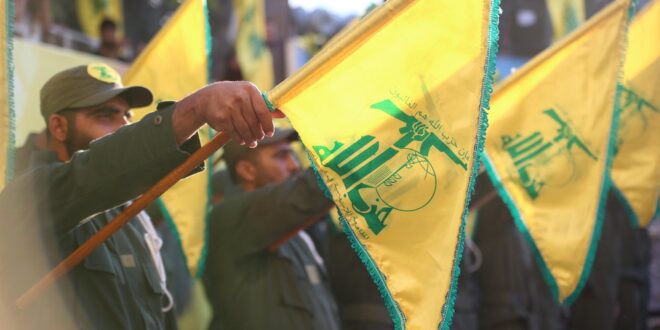If last weekend’s violence continues and intensifies, Lebanon may be dragged into the conflict.
It has been over forty-eight hours since the large-scale Hamas offensive into southern Israel started on October 7, in what the organization calls Operation Al-Aqsa Flood. Israeli cities and military targets were caught by surprise at the sheer volume and magnitude of Hamas’ three-pronged attack. This came a day after the 1973 Yom Kippur War anniversary when a simultaneous assault from Egyptian and Syrian forces struck Israel. Analysts are drawing comparisons between the two conflicts, particularly Israeli intelligence’s failure to anticipate both attacks.
Prime Minister of Israel, Benjamin Netanyahu, minced no words in an address to his people, “citizens of Israel, we are at war.” He has vowed to extract a “mighty revenge” and has ordered a mass mobilization of Israeli reservists. Now, there is fear that this new war between the Gaza Strip and Israel could spread across different parts of the region, including Lebanon. Is that a real possibility?
Lebanon’s Hezbollah had expressed solidarity with its Hamas ally and what it describes as a common cause with the Palestinian people in their struggle against Israeli occupation. In the southern Beirut suburb of Dahieh, a top Hezbollah official and cleric, Hashem Safieddine, spoke in front of a crowd of supporters, declaring, “our history, our guns and our rockets are with you. Everything we have is with you.” It was a clear affirmation by the group that it stood by Hamas and its actions. As the situation develops, it is difficult to ascertain where this conflict is heading.
The number of casualties varies. It is estimated that over 700 Israelis have been killed by the Hamas strike deep into the southern part of the country, and over 100 people have been taken prisoner. Israel responded with an airborne barrage over Gaza and bombing areas it claims are Hamas targets. However, the Health Ministry in Gaza said over 400 people have been killed, including women and children. Israel’s armed forces are still trying to regain full control of the areas infiltrated by Hamas fighters. The fighting has only intensified with each passing hour.
This attack was more extraordinary because Israel controls all land, sea, and air crossing into the Palestinian territory. And yet, Hamas still managed to pull off a ferocious asymmetrical invasion of Israel, stunning the country and the world. The leadership of the Gaza-based group has called on others to join the fight. Hezbollah said it fired upon the Israeli position on the Lebanon-Israel border. A radar station was among three Israeli sites targeted in the disputed Shebaa Farms. Israel controls this part of the Syrian Golan Heights, captured in the June 1967 war. Lebanon has long claimed the Shebaa territory belongs to it. Some believe Hezbollah’s missile attack on the Israeli-occupied territory was deliberately calculated so as not to escalate tensions even further since the area is already a region of contention.
The Israelis retaliated by firing artillery shells into southern Lebanon, which caused property damage and injuries. Currently, one Hezbollah soldier was killedin an Israeli strike on a Hezbollah observation tower. A statement was issued from the United Nations peacekeeping forces in Lebanon (UNIFIL) for both sides to restrain themselves and not to allow greater escalation.
“We are in contact with authorities on both sides of the Blue Line, at all levels, to contain the situation and avoid a more serious escalation. Our peacekeepers remain in their positions and on task. They continue to work, some from shelters for their safety.” Lebanon’s armed forces also increased its presence near the border.
The Lebanese people are waiting to see how this new round of violence will develop and if it will drag them into a new war with Israel. Something both countries cannot afford. One source told The National Interest that although the conflict in Gaza is still in its early stages, it may spread to Lebanon if it continues and Israel “crosses the red lines.” This attack may trigger a wider war. If it continues and Israel crosses various red lines, Lebanon will be dragged into it. What red lines might these be?
Israel invades Gaza, inflicting high casualties on Palestinians.
Israel attacks Hezbollah’s positions.
Israel assassinates local leaders, either Lebanese or Palestinian.
Considering these conditions and possibilities, the source added, “I think the only way out is to start negotiations over prisoners. This is the only way to reduce tensions, and both Israeli and Palestinian people will be satisfied with this.”
Nonetheless, Israel has rejected the idea of negotiating with Hamas. The Islamist group has also raised the stakes by threatening to execute one Israeli prisoner for every attack on Palestinian civilians. There is no doubt that Hamas’ initial attacks on Israel were a strategic shock for Tel Aviv that many observers are calling a defeat. Yet, this war has only begun, leaving questions but no guarantees of how it will end. Now, everyone waits to see what the next phase of this war will be.
 Geostrategic Media Political Commentary, Analysis, Security, Defense
Geostrategic Media Political Commentary, Analysis, Security, Defense





